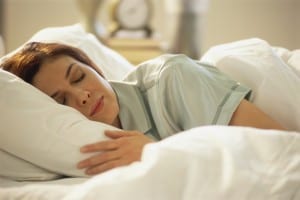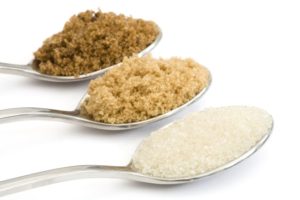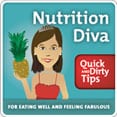 The usual prescription for a healthy lifestyle includes a healthy diet and regular exercise. But there’s another critical element that often gets overlooked: Sleep. Experts recommend a minimum of 7 to 8 hours of uninterrupted sleep every night. Yet most American adults report that they get 6 hours of sleep or less on most nights.
The usual prescription for a healthy lifestyle includes a healthy diet and regular exercise. But there’s another critical element that often gets overlooked: Sleep. Experts recommend a minimum of 7 to 8 hours of uninterrupted sleep every night. Yet most American adults report that they get 6 hours of sleep or less on most nights.
Need a little extra motivation to make getting enough sleep more of a priority? Here are five compelling reasons to turn off the television or computer and hit the hay:
Reason #1: Skimping on sleep increases stress hormones, which accelerates the aging process.
Reason #2: Under-sleeping increases insulin resistance, which is a risk factor for Type 2 diabetes.
Reason #3: Sleep deprivation affects hormones that regulate appetite–making you feel hungrier than you would if you were well-rested.
Reason #4: If you’re losing weight, getting more sleep enhances fat loss (as opposed to lean-tissue loss).
Reason #5: Women who sleep more than eight hours a night have a 72% lower incidence of breast cancer than those who regularly sleep fewer than six hours a night.
I could go on, but I think I’ve made my point! If you are taking good care of your health in every other way, don’t cheat yourself on a good night’s sleep. If you think you don’t have time to get more sleep, just think of how much more you will be able to accomplish when your body and brain are fully rested and energized. Stop thinking of sleep as a luxury and start thinking of it as an essential part of your prescription for a long and healthy life. For more information on how to improve the quality of your sleep, check these tips for healthy sleep
References:
Knutson KL, Van Cauter E. Associations between sleep loss and increased risk of obesity and diabetes. Ann N Y Acad Sci. 2008;1129:287-304. Link to article
Nedeltcheva AV, Kilkus JM, et al. Insufficient sleep undermines dietary efforts to reduce adiposity. Ann Intern Med. 2010 Oct 5;153(7):435-41. Link to study.
Verkasalo PK, Lillberg K, et al. Sleep duration and breast cancer: a prospective cohort study. Cancer Res. 2005 Oct 15;65(20):9595-600. Link to study
 Q. Are you familiar with Dr. Robert Lustig’s presentation on fructose, called “Sugar, The Bitter Truth” ?
Q. Are you familiar with Dr. Robert Lustig’s presentation on fructose, called “Sugar, The Bitter Truth” ?

 People buy organic foods for lots of reasons: They are produced without chemical fertilizers and pesticides and (in the case of animal products) without hormones and antibiotics. But a 100% organic diet may not be possible. So people often ask me which foods are most important to buy organic. Here’s my short list, in order of priority:
People buy organic foods for lots of reasons: They are produced without chemical fertilizers and pesticides and (in the case of animal products) without hormones and antibiotics. But a 100% organic diet may not be possible. So people often ask me which foods are most important to buy organic. Here’s my short list, in order of priority: The usual prescription for a healthy lifestyle includes a healthy diet and regular exercise. But there’s another critical element that often gets overlooked: Sleep. Experts recommend a minimum of 7 to 8 hours of uninterrupted sleep every night. Yet most American adults report that they get 6 hours of sleep or less on most nights.
The usual prescription for a healthy lifestyle includes a healthy diet and regular exercise. But there’s another critical element that often gets overlooked: Sleep. Experts recommend a minimum of 7 to 8 hours of uninterrupted sleep every night. Yet most American adults report that they get 6 hours of sleep or less on most nights. Q.
Q.  Q. I read recently that the consumption of caffeine prior to exercise will assist the body in using body fat as fuel, up from 21% to 40%. The remaining fuel comes from stored carbs. Any truth to the story?
Q. I read recently that the consumption of caffeine prior to exercise will assist the body in using body fat as fuel, up from 21% to 40%. The remaining fuel comes from stored carbs. Any truth to the story?